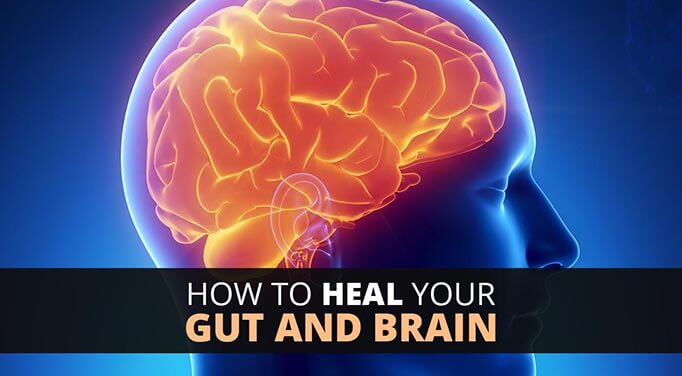There are clinical assessments that can help you prevent the development of autoimmunity, an overload of systemic bacterial toxins, or an increased barrier permeability in your gut to improve your cognitive health.
First and foremost, interpreting your immunoglobulins can say a lot about the state of your condition.
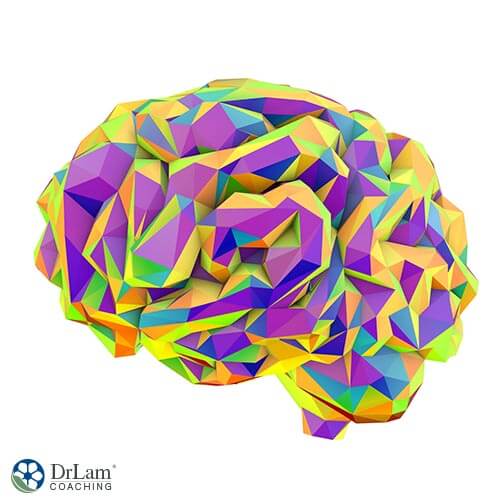
When it comes to assessing your antigenic intestinal permeability, it’s important to look at factors from all angles. When you have too much gram-negative bacteria in proportion to your gram-positive bacteria, it leads you into dysbiosis. It could be a result of LPS or other toxin invaders. This can happen without damage to your gut lining.
Actomyosin IgA means you could have autoimmunity at your gut level. When both IgA and IgG are out of range, it can mean chronic gut dysbiosis but an intact intestinal lining. When actomyosin IgA, IgG, and IgM are all out of range, you can then have damage to your tight junctions, the development of dysbiosis, and damage to your epithelial cells.
You can find out the state of your cognitive health with blood work, specifically looking at asialoganglioside, also known as Asialo GM1. It contains properties that could directly affect your neuronal plasticity. It can also help in repairing damage, as it has natural repair mechanisms and releases neurotrophins in your brain. When it is out of the suggested range in your blood work, you should work to manage it.
You should ensure that your myelin basic protein is in a healthy range, for it is a target of demyelination in numerous autoimmune conditions.
Your alpha-tubulin and beta-tubulin should also be in check, associated with your cerebellum. Your cerebellum is the part of the brain that controls balance and movement. Meanwhile, your tubulin functions as a component of microtubules. It impacts your neurological structure, your organ tissues, and reflects in various health conditions. All of these will be affected by an unhealthy gut, which could lead to cognitive health issues later on.
First, a few words of caution.
Keep in mind that patience and consistency are both keys. Discuss all of your concerns with your healthcare practitioner, before you proceed with a new plan. Never begin taking a new supplement, jump on board an exercise regimen, or start a diet program without consulting your healthcare practitioner. They know whether something can cause adverse side effects or interact with other problems you may have. Likewise, what works for you might not work for your spouse, boss, or friends.
If you are looking to heal your gut, in order to improve the health of every other bodily system, there are certain measures you can take.
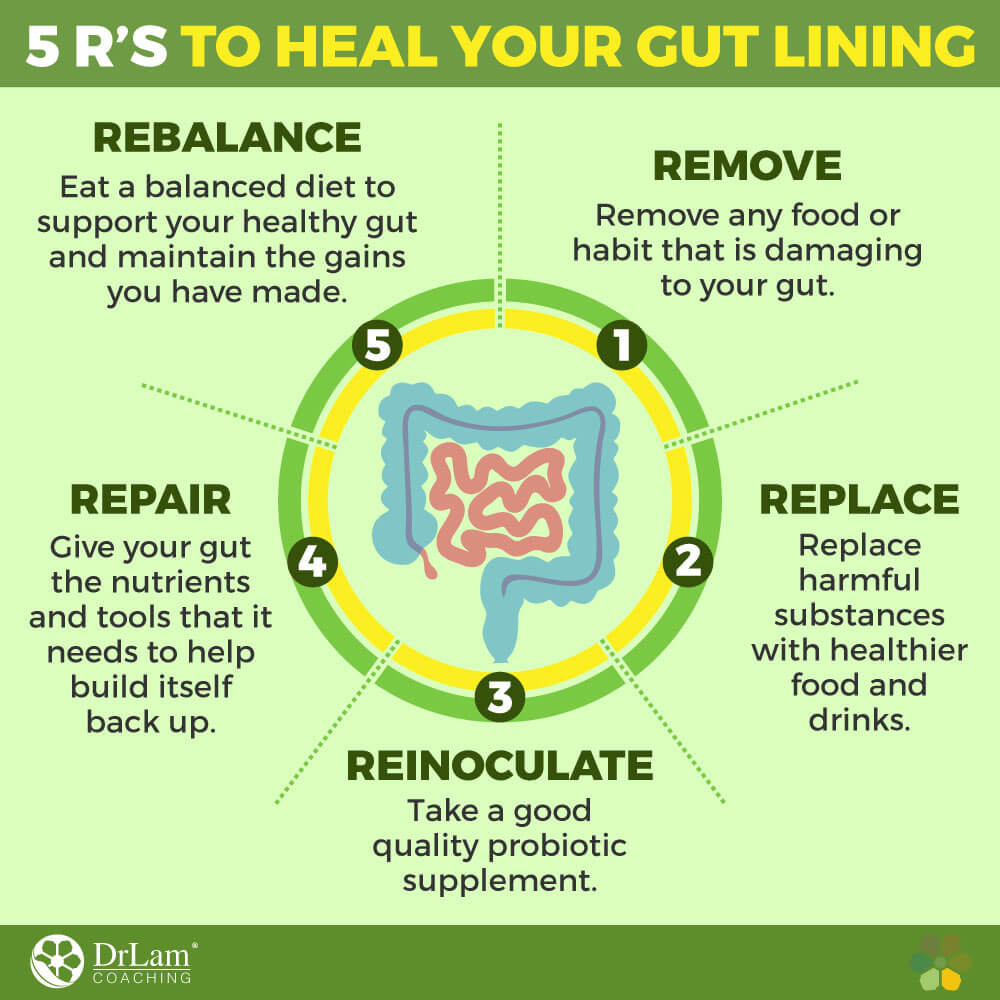
There are five R’s to follow in order to reach optimum results in healing your gut.
First, remove any food or habit that is damaging to your gut. This could include toxins, smoking, alcohol, pollution, stress, or unhealthy lifestyle habits. Additional things harmful to your gut can include gluten, dairy, refined sugar, parasites, pathogens, and yeast.
Once you’ve removed harmful substances, it’s important to replace these with healthier food and drinks that will aid in healing your gut lining. Adding back in digestive enzymes, betaine, and hydrochloric acid can help give back to your gut what it was missing. Good bacteria is also important to add.
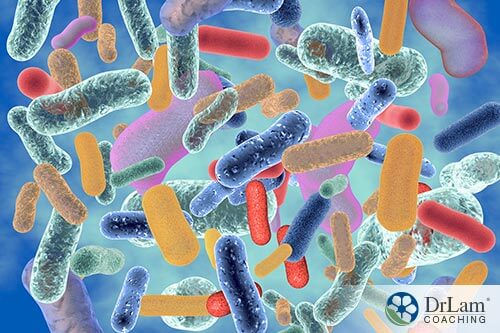 Also, you should aim to reinoculate your gut with beneficial bacteria. You can do this by taking a good quality probiotic supplement that is free of fillers, binders, and artificial chemicals. Look for lactobacillus plantarum, Bifidobacterium lactis, or lactobacillus acidophilus, which all aid in decreasing dysbiosis. You should also work on consuming more drinks or foods that are naturally high in good bacteria, such as yogurt, sauerkraut, or kefir.
Also, you should aim to reinoculate your gut with beneficial bacteria. You can do this by taking a good quality probiotic supplement that is free of fillers, binders, and artificial chemicals. Look for lactobacillus plantarum, Bifidobacterium lactis, or lactobacillus acidophilus, which all aid in decreasing dysbiosis. You should also work on consuming more drinks or foods that are naturally high in good bacteria, such as yogurt, sauerkraut, or kefir.
Give your gut the nutrients and tools that it needs to help build itself back up. These include glutamine, fish oil, vitamin D, and collagen. These are vital ingredients to helping the stomach lining repair itself and prevent further damage.
Once you remove harmful factors, replace them, and reinoculate, you will need to rebalance your gut lining. This involves eating a balanced diet to support your healthy gut and maintain the gains you have made. As you do this, you will begin to witness as your physical health and energy improve overall.
If damage to your gut lining is the cause of declining cognitive health, the best thing you can do for your brain is work to repair the tight junctions in your gut and stop the leak of food and toxins into your bloodstream. Reduce inflammation and choose foods and supplements that help regenerate your gut lining, which likewise helps rejuvenate your blood-brain barrier.
If you are looking to improve your cognitive health, BDNF is a protein you should aim to increase. BDNF, or brain-derived neurotrophic factors, are mediators that bridge between cognitive health and chronic inflammation.
Neurotrophic factors (NTFs) modulate all of the crucial steps of network construction. They are protein mediators which improve cognitive health. These protein enzymes protect your brain genesis and are found in regions of your brain that are relevant for cognitive health. Eating healthy food and exercising helps improve this protein. In fact, exercise is at the top of the list in terms of boosting your BDNF.
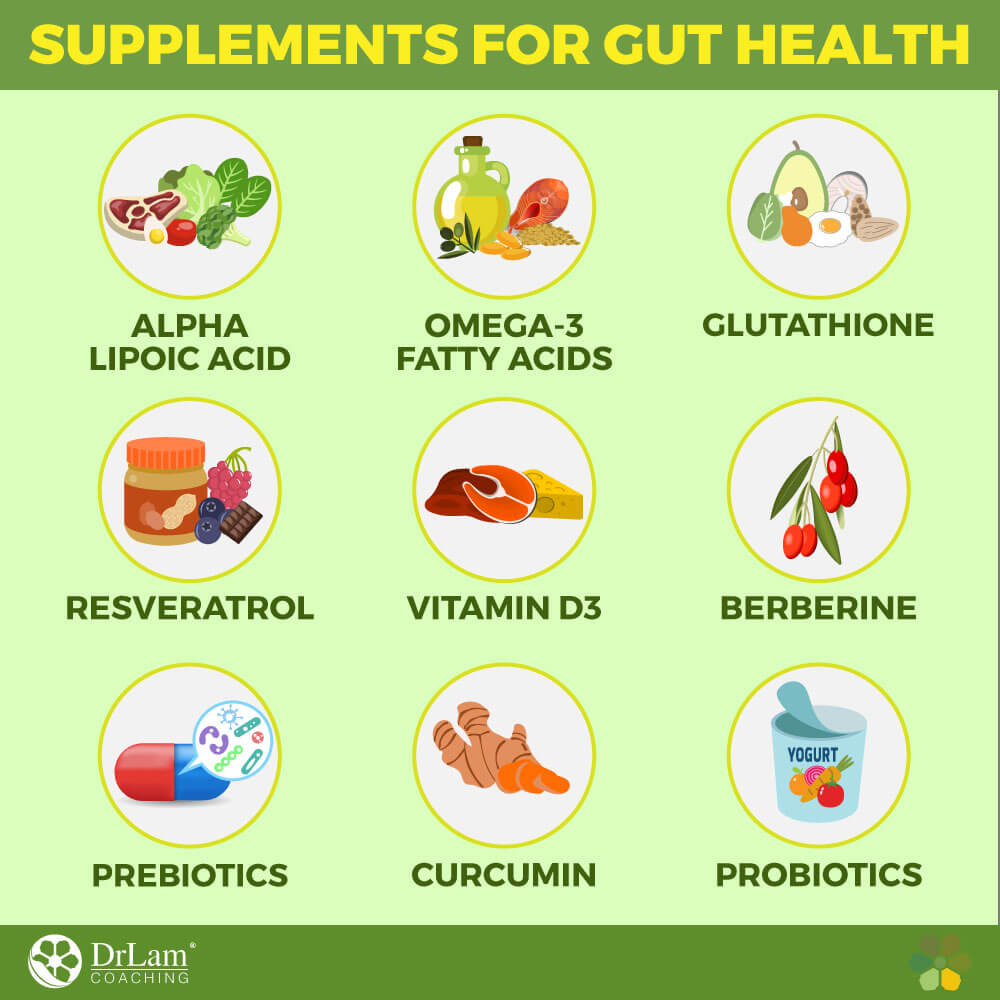
 You can detox your body of heavy metals by taking certain supplements, such as turmeric, zinc, phytonutrients, watercress, or acetyl-L- carnitine. Some nutrients can also aid in repairing your blood-brain barrier. Acety-L- carnitine will help you by protecting mitochondria in your cells. It also helps reverse any decay of your mitochondria that may have been caused by oxidative stress.
You can detox your body of heavy metals by taking certain supplements, such as turmeric, zinc, phytonutrients, watercress, or acetyl-L- carnitine. Some nutrients can also aid in repairing your blood-brain barrier. Acety-L- carnitine will help you by protecting mitochondria in your cells. It also helps reverse any decay of your mitochondria that may have been caused by oxidative stress.
Berberine
Berberine is another great addition, for it blocks any activity of MMP9, which is known to have the ability to break down various components of your blood-brain barrier, so taking berberine can help repair that. It also reduces inflammation in your brain and quickens recovery of injuries.
Curcumin
Curcumin is another wonderful addition to your diet. It increases the bond of your tight junction proteins. It also reduces inflammation in your entire body. Curcumin reduces brain inflammation, repairs your blood-brain barrier by increasing the release of Nrf2 and prevents swelling in your brain as well.
Eating turmeric, due to the fact that it contains curcumin, could also boost your BDNF, and improve your cognitive health. Curcumin reduces your systemic inflammation while boosting your BDNF levels. It also heals and repairs your central nervous system, injuries, and inflammation. Curcumin reduces oxidative stress, prevents cognitive decline, and could improve your neuroplasticity.
Vitamin D3
Increase your intake of vitamin D3, for it improves your body’s ability to repair your blood-brain barrier. Moreover, vitamin D3 increases the levels of the blood-brain barrier proteins occludin, ZO-1, and claudin-5, and it works to block the MMP9.
Omega-3 Fatty Acids
Omega-3 fatty acids can improve every system in your body due to how they interact with cell membrane fluids. Look for a high-quality supplement free of fillers, and aim to eat foods high in omega-3 fatty acids more often. This includes fatty fish such as salmon, sardines, and cod liver oil. Flax and walnuts are also a good source.
Just 400 milligrams of DHA has been found in more than ten studies to have improved BDNF levels, enhanced cognitive health, reduced oxidative stress, improved neurotransmitters, reduced cognitive impairment, and diminished axonal and neuronal damage.
Alpha Lipoic Acid
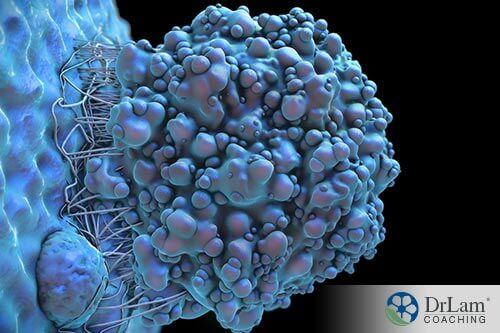 Another great nutrient to incorporate into your diet to improve your blood-brain barrier is alpha lipoic acid (ALA). It preserves the integrity of your blood-brain barrier by diminishing any oxidative stress. It also inhibits NF-kB while activating Nrf2. It aids in healing many systems in your body and reduces inflammation.
Another great nutrient to incorporate into your diet to improve your blood-brain barrier is alpha lipoic acid (ALA). It preserves the integrity of your blood-brain barrier by diminishing any oxidative stress. It also inhibits NF-kB while activating Nrf2. It aids in healing many systems in your body and reduces inflammation.
Resveratrol
Resveratrol reduces inflammation within your brain and body overall, and it quickens the repair of your blood-brain barrier.
Probiotics
Making sure to intake a good daily dosage of probiotics could also raise your BDNF, thus improve your cognitive health and cognitive health overall. Look for probiotics that contain the strains lactobacillus brevis and Bifidobacterium longum for optimum results.
Glutathione
Glutathione, an antioxidant, has been linked to improving cognitive health and reducing brain tissue damage by 70%.
Prebiotics
Prebiotics also help improve BDNF levels and can be found naturally in foods such as bananas, garlic, cooked onions, artichoke, or gum Arabic. You could also implement it in the form of a supplement for faster and more consistent recovery.
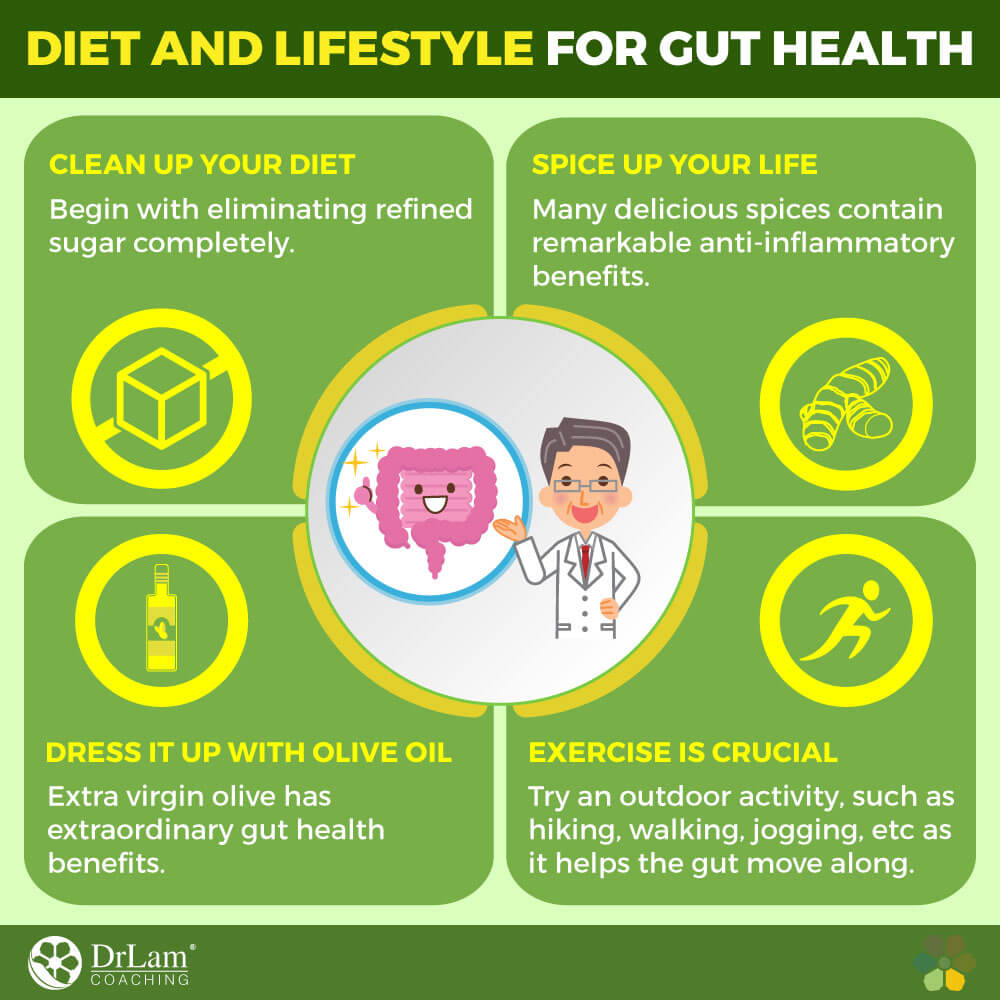
The value of the foods and drinks you put into your stomach goes far beyond how good they taste. The food you eat will shape your health a week from today, a year from today, and your entire life from here on forward. Making healthy choices is of utmost importance if you are looking to manage your AFS, gain back your energy and vitality, and protect your brain from inflammation and other conditions that follow. Eating a healthy diet that aids you in repairing your gut lining, protecting your cognitive health, and recovering from AFS is the long-term goal.
Work on cleaning up your diet. Begin with eliminating refined sugar completely. It’s a root cause of inflammation, leads to an overload of bacteria in your gut, and can be a building block for health conditions such as diabetes, obesity, heart conditions, and food intolerance.
Spice up your life. Many delicious spices contain remarkable anti-inflammatory benefits and could aid in blood-barrier repair. Curcumin and turmeric should be a part of your daily diet if feasible. Curcumin improves cognitive health, decreases bacterial toxins that damage the brain, and contains natural anti-inflammatory properties. Look for a good quality supplement, or add more turmeric to your smoothies, salads, soups, and other favorite foods.
Be wary that turmeric does interact with certain pharmaceutical medications, such as thyroid medications. Make sure to speak with your healthcare practitioner prior to taking turmeric.
Dress it up with olive oil. Extra virgin olive oil not only tastes great, but it has extraordinary health benefits as well. Extra virgin olive oil contains anti-inflammatory properties and reduces the risk of cancer, cardiovascular health conditions, indigestion, and diabetes.
Exercise is crucial. Your brain responds better than any other organ in your body to exercise. Your mood will boost and your neurotransmitters will react as you engage in physical activity. Try an outdoor activity, such as hiking, walking, jogging, or biking, or join a gym with group sessions. If you are at an advanced stage of AFS, don’t begin any vigorous physical activity without the consultation of your healthcare practitioner. They may advise you to begin with more subtle movements, such as breathing exercises, yoga, or stretches.
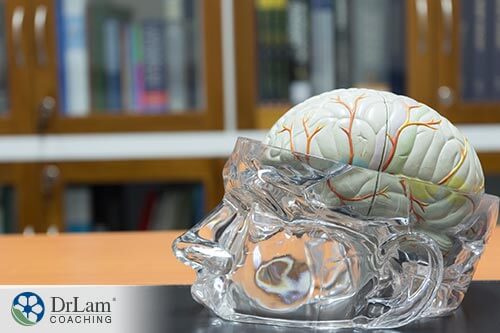 To protect your brain from autoimmunity and damaging toxins in your blood, it is essential to regenerate the lining of your gut and the villi within it through healthy habits. By healing disrupted tight junctions and decreasing permeability, you shut the door on bad bacteria and toxins getting into your bloodstream. Correspondingly, you reduce the risk of these toxins and bacteria getting into your brain. Your brain is nutrient-dependent, in need of energy, and vulnerable to stress and toxins. Thus, it is also susceptible to the effects of AFS. As you reduce the stresses on your body and mind, however, you are enhancing your cognitive health, your energy, and your AFS as well.
To protect your brain from autoimmunity and damaging toxins in your blood, it is essential to regenerate the lining of your gut and the villi within it through healthy habits. By healing disrupted tight junctions and decreasing permeability, you shut the door on bad bacteria and toxins getting into your bloodstream. Correspondingly, you reduce the risk of these toxins and bacteria getting into your brain. Your brain is nutrient-dependent, in need of energy, and vulnerable to stress and toxins. Thus, it is also susceptible to the effects of AFS. As you reduce the stresses on your body and mind, however, you are enhancing your cognitive health, your energy, and your AFS as well.
In summary, the same forces that protect your gut lining protect your brain from toxins and bacteria. By healing your gut, you are also healing your blood-brain barrier, and protecting your cognitive health. Remove unhealthy foods and drinks from your diet that may damage your gut. Look into taking supplements that could enhance your gut health, cognitive health, and energy levels. Begin taking care of your physical and mental health by exercising daily. Your goal should not be to lose weight but to preserve your cognitive health, your gut health, and your psychological health alike. As you begin to heal your gut and reduce stress, your energy levels improve, your mood boosts, and you feel healthy and glowing inside and out.
© Copyright 2018 Michael Lam, M.D. All Rights Reserved.
